
RECIPES
20-11-2015 di redazione
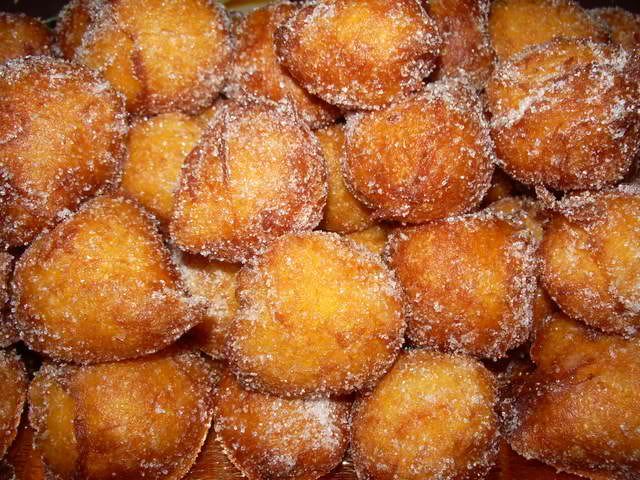
The kaimati are typical Kenyan sweets, and especially the Swahili coast, similar to our carnival tortelli.
They are often garnished with a caramelized icing and coated with white sugar.
HERE THE RECIPE
Ingredients:: Ingredients
2 flour cups
1 cup and 1/4 of water
1 teaspoon yogurt (or coconut cream, depending on taste)
1 teaspoon of yeast
1 teaspoon of oil
Mix all ingredients except water.
Then add the water, little by little (one cup may be enough).
The dough for kaimatitis should be fairly solid.
Work the dough with the palm of your hand.
Leave it to rise while preparing syrup.
Ingredients for icing: Frosting
1? glass of sugar and 1? cup of sugar
Half a cup of water
A pinch of vanilla sugar
Mix the ingredients in a saucepan and cook until it becomes thick and sticky.
Remove it from the pot.
Fry the kaimati in boiling seed oil and cool.
Take a large pot and keep it over high heat and add half of the syrup.
Add the kaimati and roll them into the pot by moving the handles to glaze them.
When the syrup has frosted them, remove them from the pot and still hot spray them with white sugar to crystallize them.
Let them cool and serve with tea or kahawa (kenya coffee).
di redazione

Climate change, the difficulty of having two maize harvests a year and problems with pest control products are convincing many farmers to focus on the tuber, which can also be processed into flour.

Kaimati are characteristic sweets of Kenya, and particularly of the Swahili coast, similar to our carnival tortelli, not stuffed.
They are often garnished with a caramelized icing and sprinkled with white sugar.
HERE IS THE RECIPE

The Swahili cuisine has an infinity of delicious sweet dishes that, especially during the Ramadan period, you can discover and taste and then propose them on our tables.
The vipopoo or...

Cinnamon or cinnamon is an evergreen tree of the Lauracee family, originally from Sri Lanka but widely spread throughout the East.
Today it is also cultivated in Tanzania and partly in Kenya...
RECIPES
di redazione
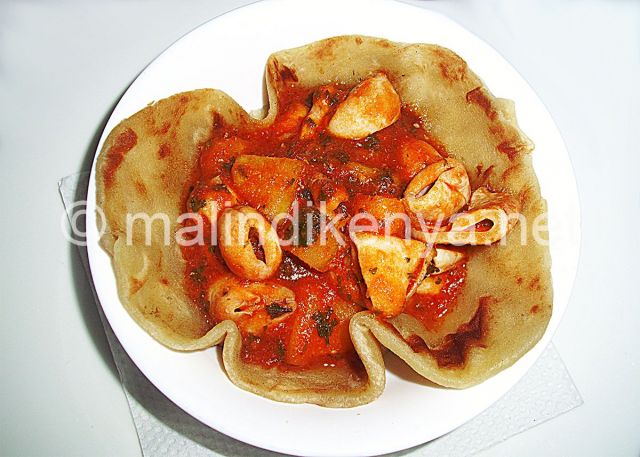
Throughout sub-Saharan Africa, tapioca (cassava) and sweet potato are used as side dishes for stews with tomato sauce. In inland regions, these dishes are based on ox or...
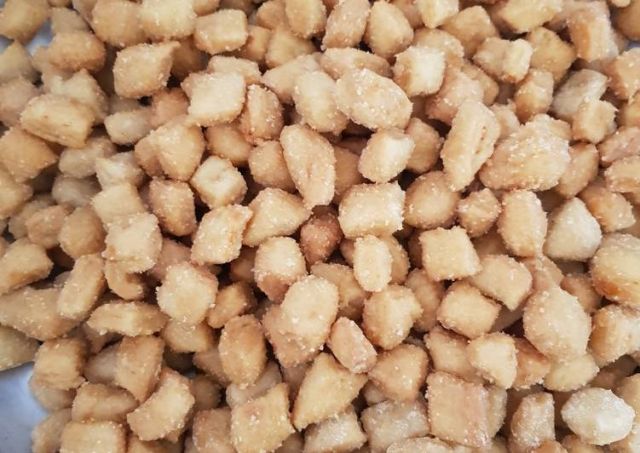
Visheti or Vikokoto are sweet, crunchy, sugar-coated fried dough morsels, one of the many specialities of the coastal area from Mombasa to Lamu, Kenya. They are very similar to...
PLACES
di redazione
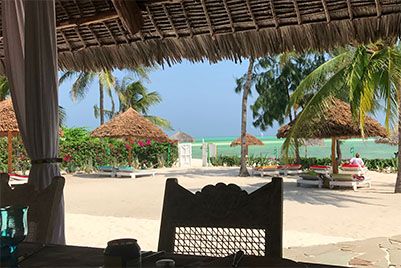
Lunch in one of the most elegant and secluded boutique hotel in Watamu, on the shores of the Bay Jacaranda,
Directly across from the sandy islets of "Sardinia Due" and relax on the beautiful private beach sunbeds?
Or organize an...
PRODUCTS
di redazione

Kenya is increasingly the ideal environment for tamarind, present on the Swahili coast since it was brought and planted from India a thousand years ago.
Tamarindus Indica is a majestic, long-lived evergreen belonging to the leguminous family.
TOURISM
di redazione
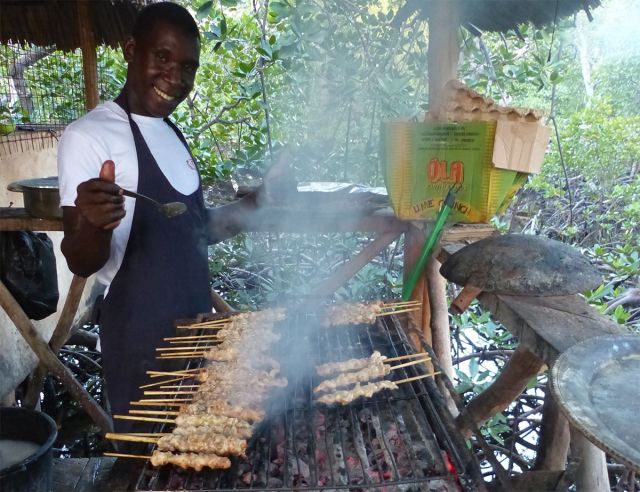
In recent years gastronomic tourism has grown considerably all over the world.
This is due to the popularity of certain programmes and also to the media coverage of dishes and restaurants, especially in social networks.
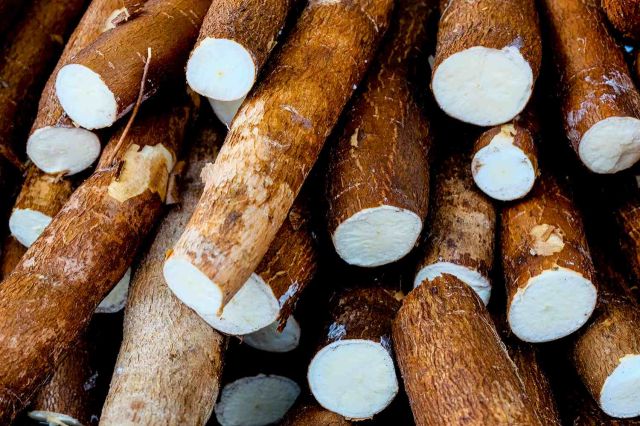
In the markets and on the edges of many roads of Kenya you can see the sellers of this tuber (already, usually they are women, the real productive and commercial engine of this continent).
RECIPES
di redazione
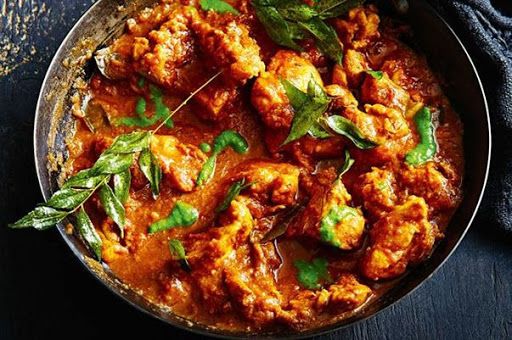
The goodness of free-range chicken in Kenya is no mystery. In most cases it is simply cooked on the grill, but there are dishes of Swahili cuisine that contemplate other pleasant encounters of flavors. One of these is tamarind chicken...
RECIPES
di redazione

Although originally from South America, papaya has spread widely in Kenya and is well integrated into Swahili cuisine. An interesting and tasty example is...
RECIPES
di redazione
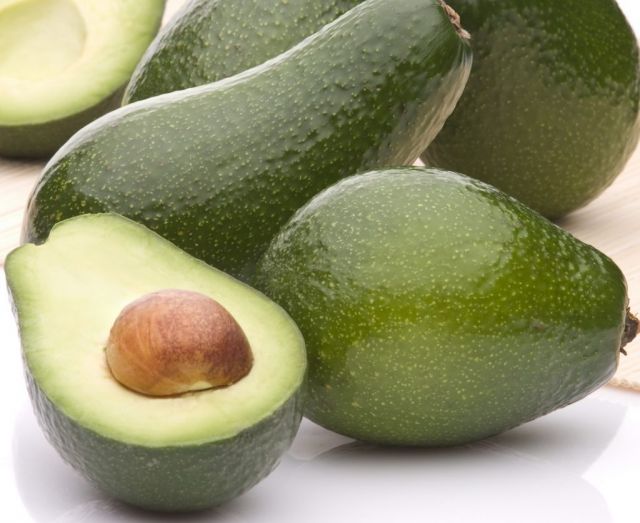
An ancient Swahili legend says that before the arrival of the Portuguese, the natives of the Kenyan coast did not eat avocado but only used oil, because they did not consider it as fruit or vegetables.
When the Portuguese decided...
CULTURE
di redazione

The Kiswahili language, originally from the coast of the same name that goes from the north of Mozambique to the Horn of Africa and later adopted also by the rest of East Africa, particularly by...